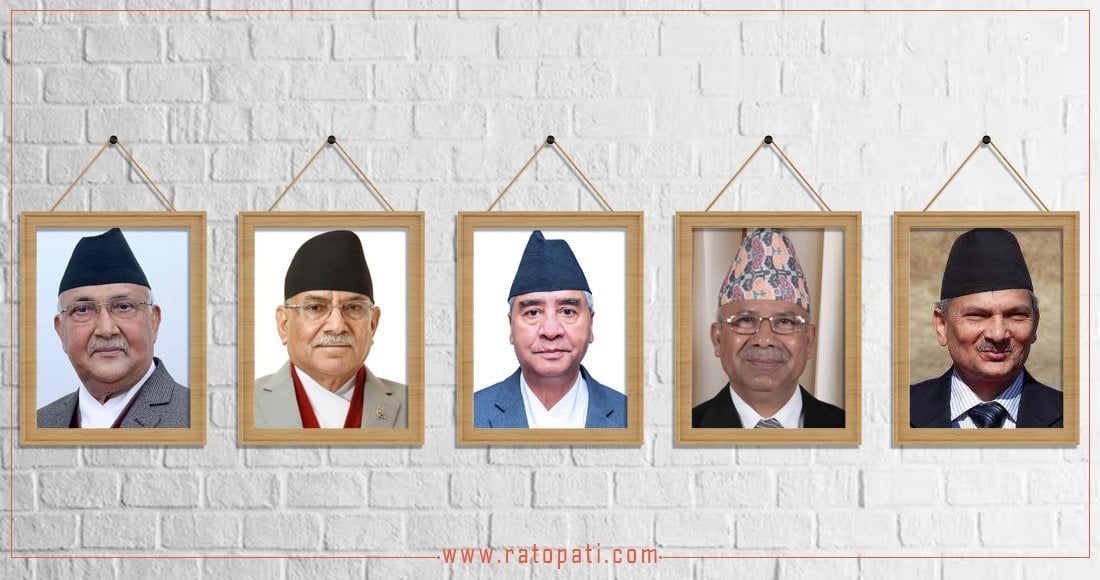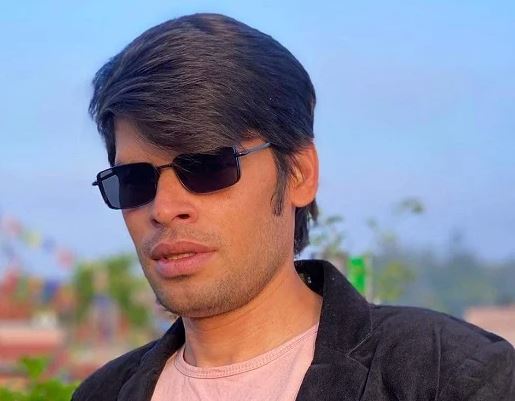Nepali politics: Trend of eternal political roles

Kathmandu, September 17 — Former Prime Minister and President of the Nepali Congress, Sher Bahadur Deuba, announced on September 12 that he is nearing retirement. During a program at the party's central office in Sanepa, where outstanding local level leaders elected from the party were honored, Chairman Deuba clarified that he is in the process of retiring.
Deuba, who took over leadership following the death of then-Party Chairman Sushil Koirala in January 2016, served two terms as the party's president. According to the party’s constitution, Deuba is expected to transfer leadership during the 15th general convention in 2025. He has directed party leaders to start preparing for future leadership.
"I am of age now. It is time for retirement. Future leaders need to be concerned. The upcoming leaders will need to coordinate and lead," Deuba said.
At 79 years old, Deuba had aspirations to lead the government after Prime Minister K.P. Sharma Oli. Whether Deuba’s aspirations will be fulfilled depends on how honest Oli appears to be, as it remains to be seen.
Active in politics since 1991, Deuba has been the only leader continuously elected in parliamentary elections from the far-western district of Dadeldhura from 1991 to 2022. He became Home Minister at the age of 45 in 1991 and first became Prime Minister at the age of 49 in 1996. Deuba’s announcement of retirement has energized Congress leaders who had been waiting for future leadership opportunities.
Congress General Secretary Bishwaprakash Sharma had presented a proposal on the term limits of leadership at a central committee meeting. The proposal set limits of one term for the presidency and a maximum of two terms for the prime ministerial position.
While Deuba announced his retirement, former Prime Minister and Chairman of the Nepal Communist Party (Maoist Center), Pushpa Kamal Dahal 'Prachanda,' argues that there should be no 'exit' for leaders in politics. Speaking with media at Biratnagar Airport on September 14, Prachanda clarified that leaders should not have the option to retire from politics.
"There should be no exit for leaders in politics. True politicians continue to engage in politics as long as they live. They continue to influence politics even after their death," Prachanda stated.
Having been a party leader since 1988, Prachanda has successfully served as Prime Minister three times. Now 70 years old, he also seeks to continue leading, aiming for a special convention or the party's ninth general convention. Voices advocating for term limits and restrictions on leadership roles emerged during the first statute convention of the Maoist Center held in early February. However, these issues were not included in the party constitution.
Not only within the Maoists but also in the ruling party, CPN-UML, there has been intense debate about age limits and term limits. The ninth general convention of CPN-UML introduced an age limit policy of 70 years, but this was removed before the tenth general convention in September 2021.
According to UML leaders, the removal of the age limit was intended to make it easier for party chairman K.P. Sharma Oli to continue leading. Oli, who has turned 72, successfully became Prime Minister for the fourth time and claims he will remain active in politics for another 20 years. He has aspirations of becoming a powerful Prime Minister with a single majority in the upcoming elections.
Madhav Nepal, who was the General Secretary of the CPN UML for nearly 15 years, is still at the helm of CPN (US), the splinter faction of CPN (UML). He also harbors ambitions of becoming Prime Minister.
Rashtriya Janamorcha Chairman Chitra Bahadur K.C. is 80 years old. KC's supremo Mohan Bikram Singh, Rastriya Prajatantra Party leader Lokendra Bahadur Chand, and other leaders are also active in politics. Ramchandra Paudel, nearing 80 years, is currently the President.
The Unified Socialists’ revised constitution does not specify age limits or term limits for leadership roles. The party’s respected leader Jhalanath Khanal, despite being 76 years old, remains active in politics and has stated his intention to continue for another 10 years.
Among the oldest leftist leaders, Mohan Bikram Singh of the Nepal Communist Party (Mashal) is still active in politics at 91 and is not considering retirement yet.
Former President Bidya Devi Bhandari, who served as the head of state for seven years, is rumored to be returning to active politics at 63.
The recurring leadership roles and positions in government have led to growing public dissatisfaction with leaders.
‘There should be no retirement in politics’
Analyst Dambar Khatiwada argues that, unlike employees, politics does not have formal retirement provisions. He states that it is natural for the public to question when the same person repeatedly takes on leadership roles.
"Instead of focusing solely on age, we need to establish democratic norms. This means setting term limits. Once this is done, internal problems within the government and parties will resolve themselves. Some may retire at 70, others at 60, 50, or 40 years old—it makes no difference," he said.
Khatiwada highlights that former U.S. President Barack Obama, who first became president at 54, completed two terms and retired from active politics. He cited President Joe Biden, who could have chosen not to run again if he wished, emphasizing that such practices are not well understood in Nepal.
Khatiwada argues that age-based debates are not very productive and that age limits, as practiced for employees, do not exist in politics.
Since 1991, no leaders who have reached the government leadership roles have taken a break from active politics. Krishna Prasad Bhattarai, who became Speaker at 34 in 2015, first became Prime Minister at 66 in 2011. Manamohan Adhikari of UML served as Prime Minister at 74 in 1991. Between 1991 and 2024, 13 leaders served as the chief executive of the country at various ages, with only former King Gyanendra Shah and former Chief Justice Khel Raj Regmi being non-politicians. Several leaders who served during this period, including Bhattarai and Adhikari, have since passed away.
Leaders in executive positions from 1991 to 2024
- Krishna Prasad Bhattarai (1991–2004): Two terms as Prime Minister at ages 66 and 75.
- Girija Prasad Koirala (1991–2008): Five terms as Prime Minister at ages 67 and 82.
- Manamohan Adhikari (1977–1995): Prime Minister at age 74.
- Sher Bahadur Deuba (2003–): Five terms as Prime Minister starting at age 49.
- Lokendra Bahadur Chand (1997–): Four terms as Prime Minister starting at age 43.
- Surya Bahadur Thapa (1984–2015): Five terms as Prime Minister starting at age 37.
- Pushpa Kamal Dahal (2011–): Three terms as Prime Minister starting at age 54.
- Madhav Kumar Nepal (2009–): Prime Minister at age 57.
- Jhalnath Khanal (2006–): Prime Minister at age 61.
- Baburam Bhattarai (2011–): Prime Minister at age 57.
- Sushil Koirala (1996–2016): Prime Minister at age 74.










Leave Comment